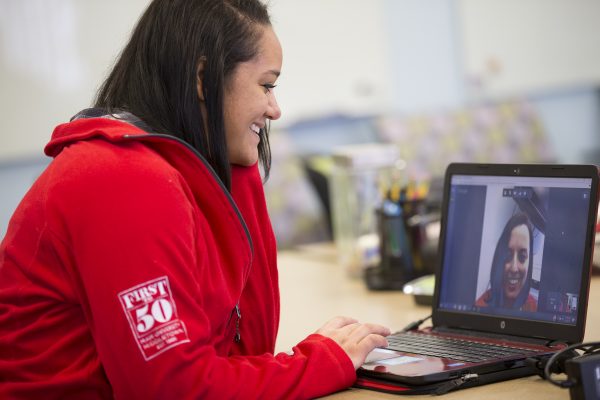Cybersecurity Awareness Month is a great time to review your own practices and secure your personal information. One in three homes with computers is infected with malicious software, and nearly half of American adults — 47% — have had their personal information exposed by cybercriminals, according to the U.S. Cybersecurity & Infrastructure Security Agency.
Are you sharing passwords? You’re not alone — a surprising 31% of millennials do it (that’s the most of any age group). Has your Facebook account been hacked? Welcome to the club — growing by 600,000 per day, according to the company.
Take control of your personal data this Cybersecurity Awareness Month with these five tips from Joseph Kennedy, visiting assistant professor in the Department of Computer and Information Technology at Miami University Regionals. And if you’re interested in learning more about cybersecurity — and even getting some skills that can help you advance your career — check out the school’s brand new Cybersecurity Microcredential here.
MORE TIPS & TRICKS: How to Access Higher Education Without High Debt
Use Antivirus Software (Free)
…and keep it up-to-date! Kennedy notes that AVG Free and Microsoft Defender are good options, but users should research to find the best one for their needs. Make sure that you use only one antivirus program — if you have more than one running, they could view each other as security threats and limit their effectiveness.
Get a Password Manager (Free)
Use different, complicated passwords for each online account, and use a password manager to keep track of them. Apple’s iCloud Keychain is built into Apple products, and Bitwarden is another free option. Again, users should research to find the best program for their needs.
Hide Your Data With a VPN (Can be as cheap as $3/month)
Use a virtual private network (VPN). This is not free, but it protects your information when you are connected to the Internet. VPNs prevent others from seeing what sites you look at, what information you send (think emails, messages and forms), and where you are located. CNET has a good list of VPNs that can serve as a starting point to find the right one for you on this page.
Ignore Email Links (Free)
Never click on a link in an email. This is one of the most common ways that cybercriminals and online scammers capture information from users, and they can use tricks to make their emails look legitimate, or even identical to reputable businesses you likely do business with. Kennedy recommends using your browser to visit websites directly instead of using links in emails. Learn more about spotting email scams from the Federal Trade Commission’s website.
Back It Up (Free)
Back up your important documents and files. Though you can copy those important contracts, paperwork, family photos and videos to a physical hard drive, Kennedy notes that cloud backup (websites that you upload your files to) are safer from fires, floods, loss, or other physical damage. Cloud backup can be free for a small amount of space, and then usually require a subscription fee for more space and perks. There are built-in options for both Windows (OneDrive) and Mac (iCloud), and many other options are available.





